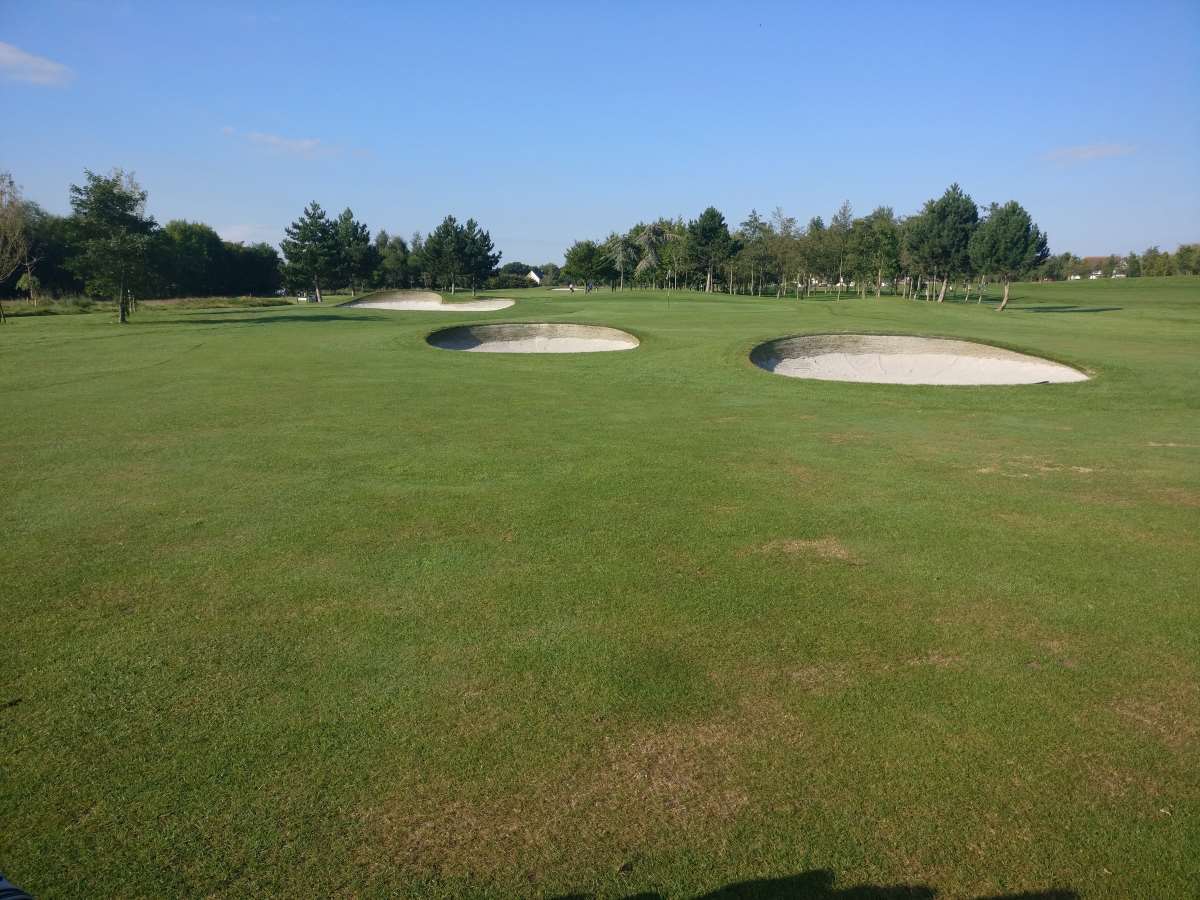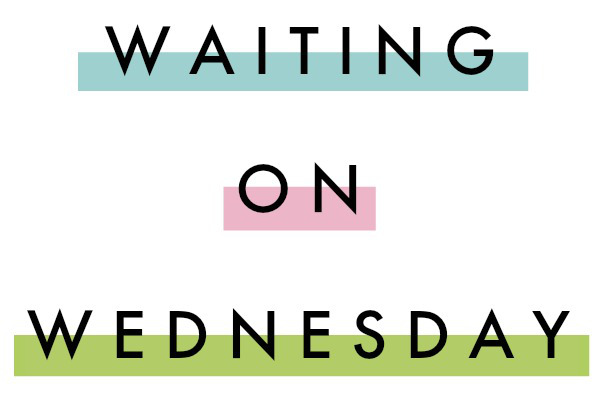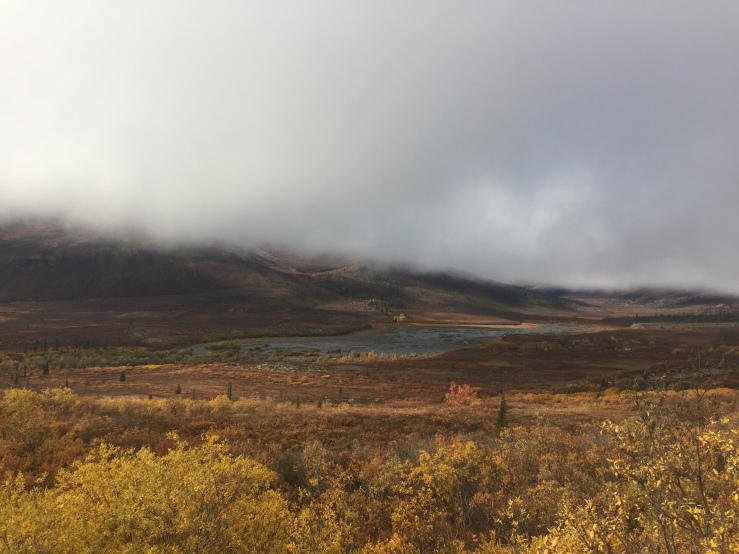If one of your New Year’s resolutions is to slow down, be mindful and connect with your inner self, I’ve got the doc for you. As I wrote about recently in Documentary Magazine, one of the London Film Festival’s stand out films for me was Max Pugh and Marc J. Francis’ Walk With Me, which opens in UK cinemas this week. The film takes us to southern France, deep inside the monastic community of Plum Village, where the Zen Buddhist inhabitants are utterly focused on leading mindful lives. The community is guided by the revered Thich Nhat Hanh, whose readings are brought to life in voiceover by Benedict Cumberbatch.
Immersive is an overused term these days, but this film comes close to doing the term justice. Four years in the making, the co-directors learned they needed to become members of the community before they could tell its story. I spoke with Francis about the making of it before the film’s screening at the London Film Festival.
(Transcript edited for length and clarity.)
Carol Nahra: There are a lot of films out there at the moment where of course you would say it’s better to see on the big screen, but this in particular seems to have been made with a cinematic experience in mind.
Marc J. Francis: This really was a subject that lent itself to the big screen experience. Because our intention was to make a film which could be experiential, as a film that you kind of feel. So what does it feel like to be a part of this community that commits their lives to cultivating mindfulness?
CN: The audio is amazing. It seems as important as the visual in some ways.
MF: Yeah, we invested heavily on the sound. We really wanted the sound to play as big a part if not a bigger part as the visual experience. Because bringing you inside into the film really enhances that experience. And it is about, what they do is about how deeply do they listen.
CN: Tell me a bit about your coming to this topic.
MF: I came to it through Max Pugh, the co director, whose brother became a monk about eight years ago….There was a point where the monastery was starting to think about letting in cameras for the very first time. Thich Nhat Hanh always shied away from publicity throughout his life; never really wanted it. But he felt that maybe now was the time to try and be more open. The stipulation of Thich Nhat Hanh was to find a way to make it about community; don’t make it about me.
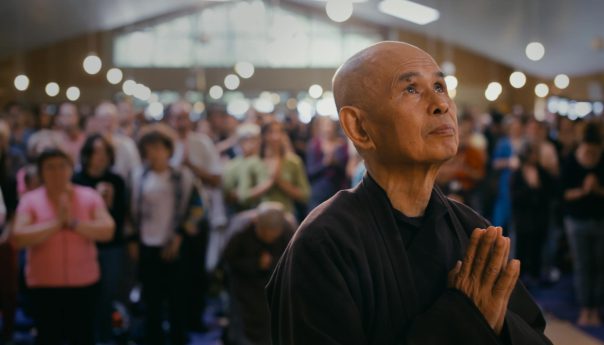 Thich Nhat Hanh
Thich Nhat Hanh
CN: You had access but it still took four years to make. What took all the time?
MF: It’s not a conventional film in the sense that you are not focusing on one to three characters and following their narrative arc. And that you’ve got your A to B and end up at C. It’s trying to create narrative out of a mood or feeling. So to do that was extremely difficult. Plus because we wanted to find a way to translate the energy of mindfulness as we experienced it at the monastery to the audience, the only way to do that was if we invested time in the monastery ourselves and started to practice, to tune into that energy field and feel it and edit in a way that reflects that mood and pace. And that is no easy thing to do – to find a way to keep your stress and your anxieties at bay and find a sense of inner presence and stillness and reflect that to the audience.
CN: So presumably that meant engaging before you picked up the camera, or putting the camera down to engage in the practices of the community?
MF: Yeah, well we started off with a camera. And then that didn’t work. Because we weren’t getting any cooperation. Only when they got a sense that we weren’t on a deadline, and we weren’t having a goal and we weren’t saying on a Monday okay by Friday we need these three scenes – if we ever did that we would fail. But if we let go of the goal and just started to feel present…We just kept our cameras at bay and in the event that something revealed itself to us we were unable to capture it. And the more that we did that the more open they became and the more the trusted us and our ability to capture that kind of vibration. A bit like don’t make a film about a kung fu master if you haven’t even tried kung fu itself.
CN: So what was that like for you? Because you come from strong narrative storytelling background and this whole process as you describe it must have been very intense for you.
MF: Yes it was very intense, you’d step into the great unknown of no direction. And you really don’t know what’s going to happen. A director wants to be in control. So to let go of these ideas of control and step more into a place of trust was a great learning curve. That ended up becoming a manual for life.
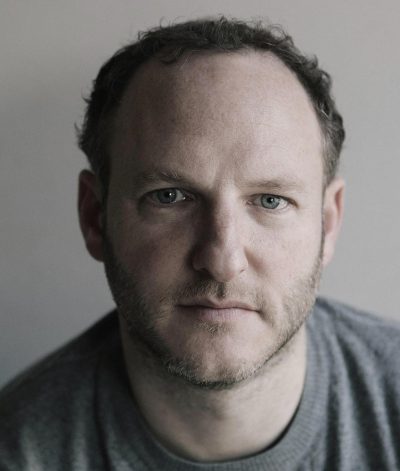 Marc Francis
Marc Francis
CN: So what will you be taking forward with you? Will you be living differently?
MF: I already am. One of the reasons I was attracted to the project in the first place was because I could see that the life of an independent filmmaker is a tricky one. There are highs and lows, there are disappointments. You get great moments and you get bad moments. And how does one find a sense of inner balance within that storm so that you’re not finding yourselves getting highly anxious when things aren’t going well or over excited when things seem to be going well? How can I make a film, how can I make a career for myself as an artist and as a family man in this career where I enjoy the process? And I’m happier inside myself for the process? These are the questions I was starting to ask myself before the film came along. I don’t want to win an Oscar and be depressed about it or stressed about it. That kind of thing. That feeling should be with me every day – whether I win one or not is not the point. So I got a sense that when I arrived to Plum Village for the first time that there were some really amazing things going on here that could be extremely beneficial to how I want to live my life.
Has the film been well received?
It has. I think there is a time now where people are getting a bit overwhelmed with what is going on politically. This Trump anger, this divisiveness which is coming through our feeds, it’s like do I want to go to the cinema and be reminded more about what is going on or can I go to the cinema and have an opportunity to breath and get back to myself or try to step away from it in some way? So seeing the film in that wider context is like an antidote to the larger context of what is in our faces on a day to day basis.
Walk With Me opens in cinemas across the UK on 5 January.
Advertisements Share this:


